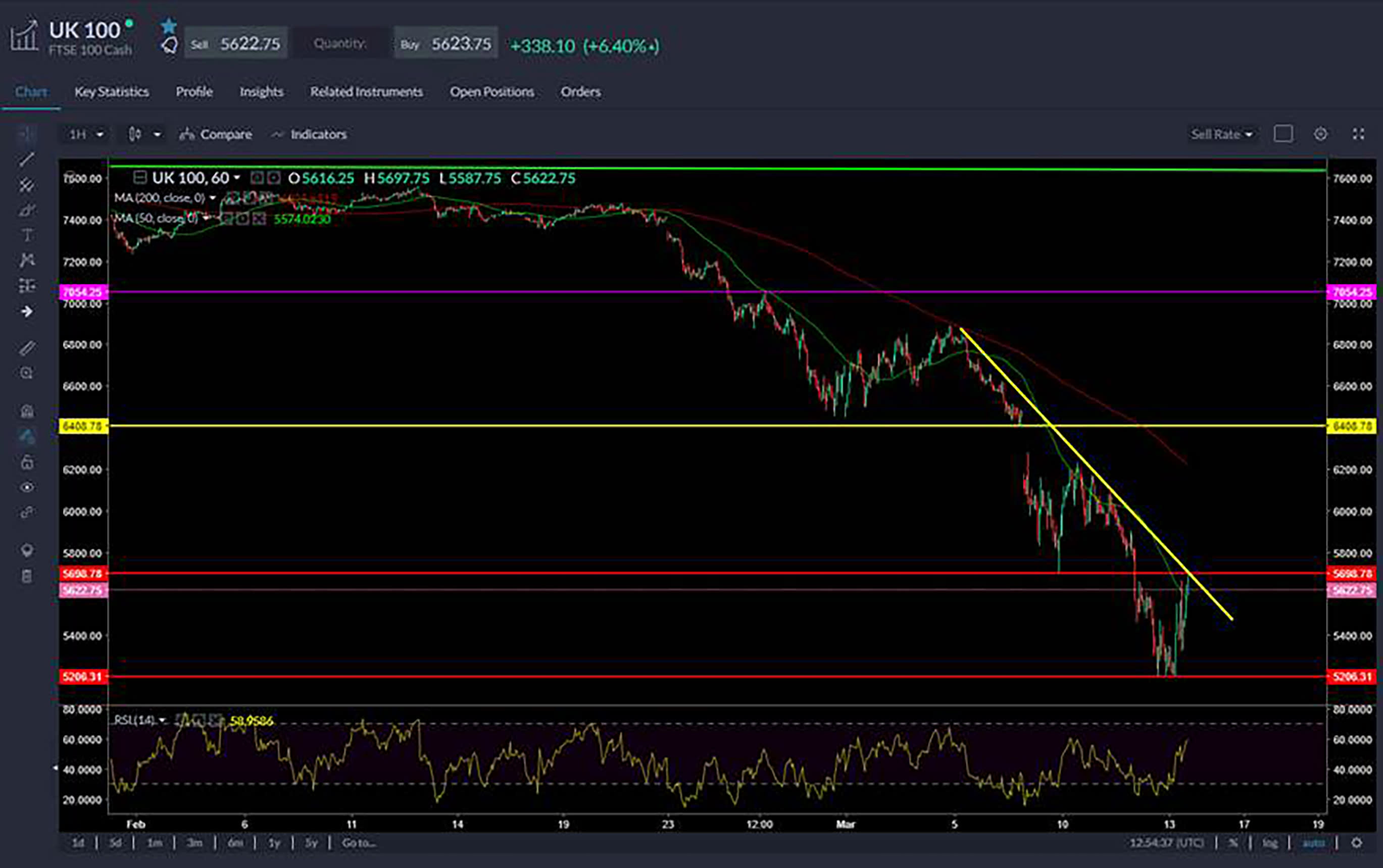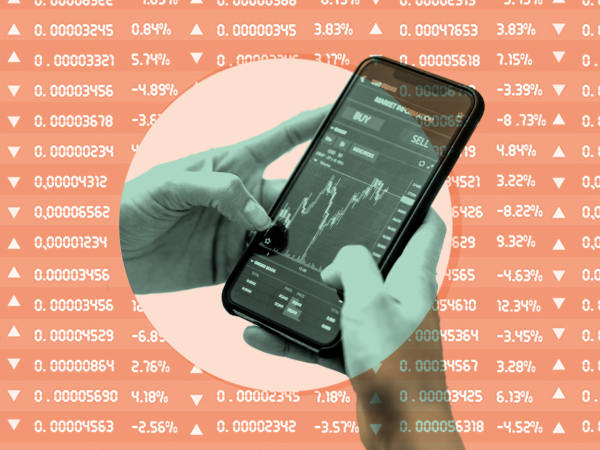13:00 European equities stage fightback
The volatility right now is simply staggering, but it does look like investors are keen to buy on what look like some mightily cheap valuations. At some point value will take over from fear, but I’m still not convinced we’re there yet and stabilisation is still a wee bit away
European stock markets are on fire as the EU, ECB and German government finally came to the party and told markets that they are ready to be the backstop. The message today from Europe has been clearer, much clearer. Fiscal stimulus on the table. Europe has really rallied round after yesterday’s shock to say they will do ‘whatever it takes’. The clearer messaging from the authorities is supportive of equity markets.
German finance minister Olaf Scholz announced an unlimited credit facility to help firms struggling with short-term cash flow. He also said the German government could implement stimulus programme if needed, is looking at fiscal stimulus later this year, does not rule out taking stakes in companies. We’ve also had a slew of ECB speakers talking hard to make up for Lagarde’s ‘miscommunication’ yesterday.
The EU is ready to trigger crisis clause allowing fiscal stimulus according to the European Commission vice president Valdis Dombrovskis. Margrethe Vestager said governments will need to give state aid at a much larger scale, that the EU will put in place all procedures needed to deal with new state aid very fast. She also says the EU will put in place a compensation scheme for tourism, hotel and transport sectors. EC president Ursula Von der Leyen (pictured above) said the EU is to set up a €37bn coronavirus crisis fund, which is relatively small but a step in the right direction. She also noted that the serious disturbance to the Italian economy requires wide range of state aid measures.
By lunch, the FTSE MIB was up 15 per cent to claw back most of yesterday’s losses, whilst the Stoxx 600 was up 7 per cent. In London, the FTSE 100 rallied over 7 per cent to test near term resistance on the descending trendline around 5574. 5200 is the hard deck, or perhaps the trap door.
08:30 Italy bans shorts, European equity rally losing steam fast
Now it’s time to blame the short sellers…when trouble strikes, policymakers like to fall back on old playbooks, like banning short selling of shares. Italy’s market regulator has banned outright short-selling on 85 stocks after the FTSE MIB led the carnage in Europe yesterday with a 17 per cent decline. It builds on the existing ban on naked short selling. Spain is doing similar today, while regulators in Seoul will ban short-selling for 6 months.
We see this kind of action occasionally when markets spasm and the recent rout fits the bill. US regulators banned short selling of bank stocks during the great financial crisis of 2008-09, while similar steps were taken during the height of the 2010-11 European sovereign debt crisis. As I outlined in an article a year ago almost to the day, short selling is not the problem. The policy response is pointless, but the MIB is up 5 per cent this morning, leading European markets higher.
The Security Exchange Commission says this: “Unbridled short selling is contributing to the recent sudden price declines in the securities of financial institutions unrelated to true price valuation.” But research on these short selling bans showed they in fact tended to reduce market liquidity and slow down price discovery, while failing to prevent declines based on economic fundamentals.
It’s been wild in Asia overnight. We saw a massive short squeeze blow out in Australia, with the ASX closing up 4.4 per cent having earlier dropped 8 per cent, after the RBA pumped $5.6bn into the system.
Broadly though Asian sells fell again, taking the cue from a brutal day on Wall St and Europe that was the worst since 1987. Tokyo fell 6 per cent, while Hong Kong fell 3 per cent. Thailand and India triggered their -10 per cent circuit breakers.
European markets are trying to bounce very hard today. Airlines are back up, with IAG leading the way with a 7 per cent rally at the open. The FTSE jumped 5 per cent to 5,500, before handing back a chunk of gains to trade up around 2 per cent. Meanwhile the DAX in Frankfurt rose 2.5 per cent to 9,400, before easing back to trade up just 1 per cent. There is not much conviction in this rally, I smell a dead feline again. Travel & Leisure was in the red by 08:30 – the weakest link is the first to break.
Such volatility, coming after Thursday’s selling, is hardly good for the market. And with the Vix trading around 70 still this volatility isn’t going anywhere. Which means more big drops and no doubt some big up days too.
The question investors will be asking themselves is whether now is the time to dip their toes in the piranha water to buy bargains. Certainly, there are plenty out there if you’ve got a longer time horizon. Some will be braver than others. This will lead to these rallies before the selling takes hold again as the exit signs get lit up. Private equity must be sniffing around right now for some companies looking very cheap.
The complete dislocation in markets for now suggests stocks will remain extremely volatile and continue to trend lower. Rising bond yields suggest the only thing that investors want is cash. US 10-year yields have surged to 0.98 per cent, a huge rally off the 0.318 per cent hit earlier this week. Today’s repo operation key. Yesterday the Fed flooded repo markets with $500bn. It the take up was very low, as we think participants didn’t have time due to short notice. The worry would be if today’s $500bn is oversubscribed.
Usual Friday drill - no one will want to get the wrong side of risk over the weekend when markets are closed. Liquidity is drying up. Dislocation to worsen and we could see circuit breakers tripped again on Wall Street. No one would mind if they just closed all the exchanges today and we go home for the weekend early.
In FX, the dollar squeeze eased a bit after the Fed flooded the market with vast liquidity, but we are seeing the euro dip again on the open.
Neil Wilson is chief markets analyst at Markets.com











